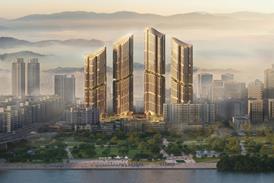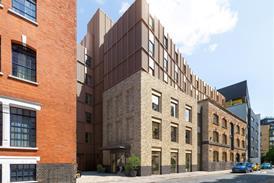- Home
 Heatherwick unveils designs for first residential project in South Korea
Heatherwick unveils designs for first residential project in South Korea Architecture practices monitoring Middle East teams as Iran conflict escalates
Architecture practices monitoring Middle East teams as Iran conflict escalates Green light for Ackroyd Lowrie’s co-living redesign of SPPARC office scheme in Bermondsey
Green light for Ackroyd Lowrie’s co-living redesign of SPPARC office scheme in Bermondsey Reuse of historic buildings dominates 2026 RIAS Awards shortlist
Reuse of historic buildings dominates 2026 RIAS Awards shortlist
- Intelligence for Architects
- Subscribe
- Jobs
- Events

Events calendar Explore now 
Keep up to date
Find out more
- Programmes
- CPD
- More from navigation items
Approval body defends decision not to downgrade Grenfell cladding

BBA says it was given no reason to alter fire rating – unlike its French counterpart
Construction products approval body the BBA has defended its decision not to follow the example of its French equivalent and downgrade the fire performance of the cladding used on Grenfell Tower.
The BBA accredits the performance of construction products with its stamp of approval, widely accepted by specifiers, building control and insurers.
French certification body CSTB lowered the fire rating of Reynobond ACM cladding panels featuring a polyethylene core back in 2014.
The decision meant the rating for the polyethylene core panels, known as Reynobond PE, was taken below UK building regulations’ requirements for use on buildings over 18m high – meaning had the French ratings been used in the UK, the cladding would not have been allowed.
…
This content is available to registered users | Already registered?Login here
You are not currently logged in.
To continue reading this story, sign up for free guest access
Existing Subscriber? LOGIN
REGISTER for free access on selected stories and sign up for email alerts. You get:
- Up to the minute architecture news from around the UK
- Breaking, daily and weekly e-newsletters
Subscribe to Building Design and you will benefit from:

- Unlimited news
- Reviews of the latest buildings from all corners of the world
- Technical studies
- Full access to all our online archives
- PLUS you will receive a digital copy of WA100 worth over £45
Subscribe now for unlimited access.


